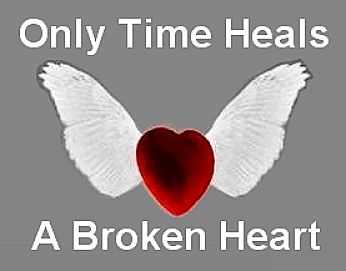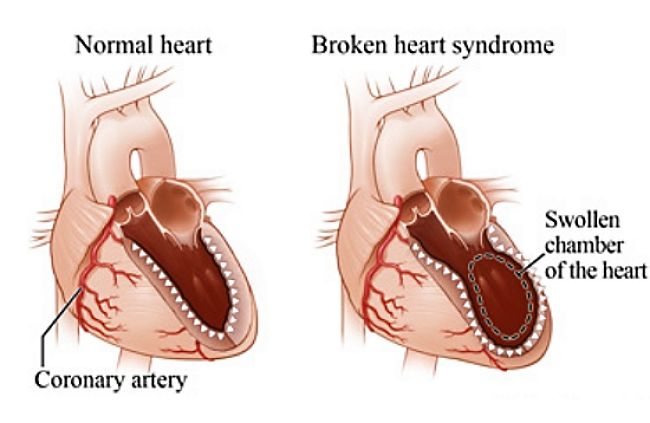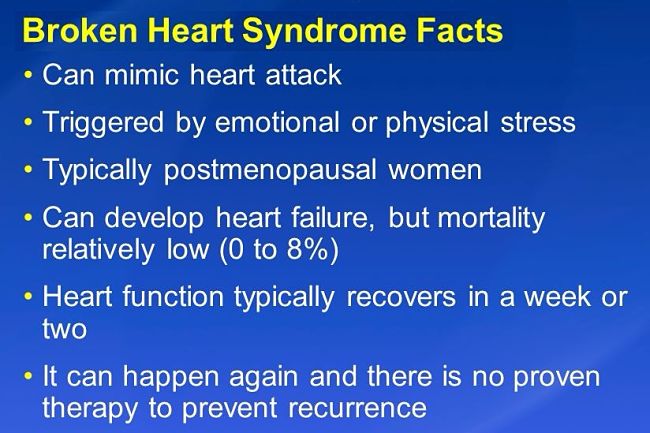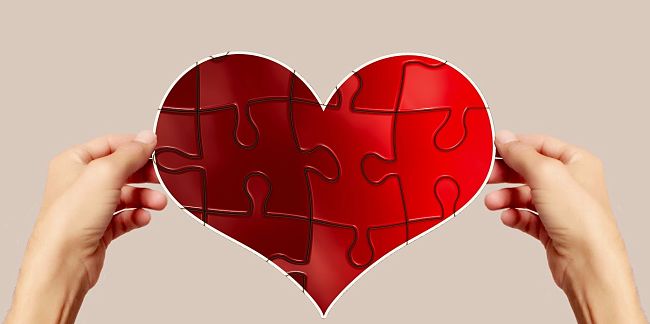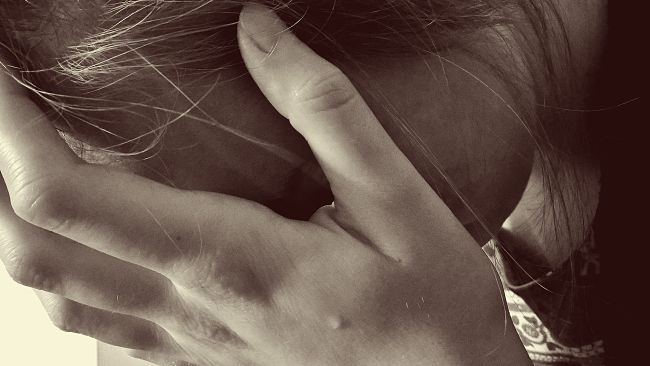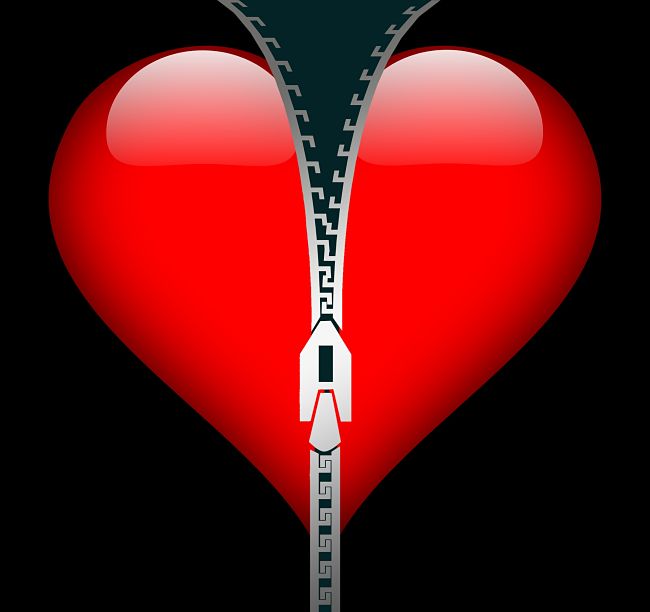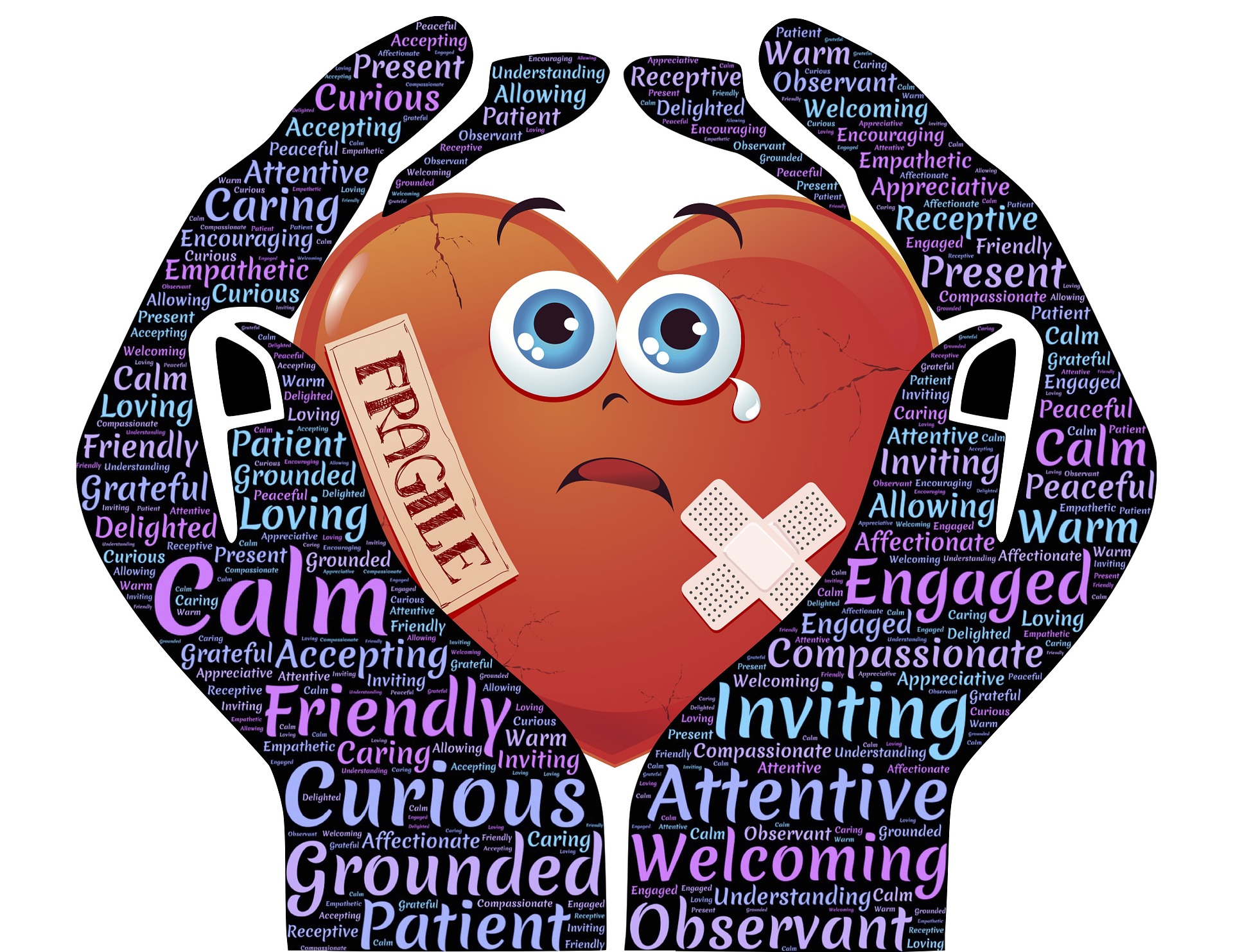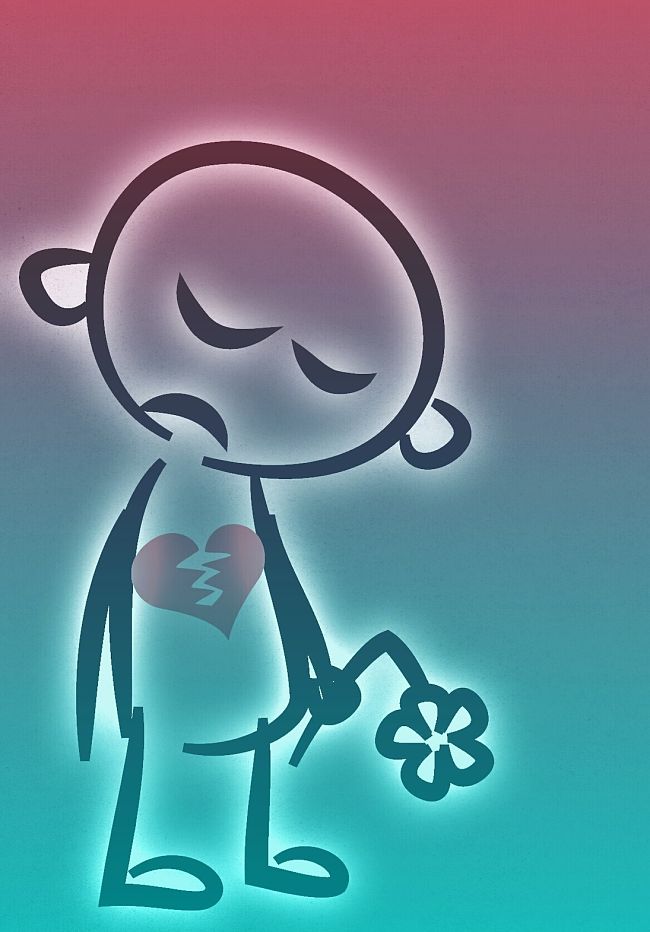Can you Really Die of a Broken Heart?
We sometimes read in the newspaper that an elderly widower, or widow, died shortly after the sudden death of their long-time partner or spouse.
Perhaps this has happened in your family? Relatives of these people often believe that their grieving grandparent or parent died of a broken heart. But this is not confined to older people as it occurs after long loving relationships of younger people as well.
Is this really possible? Can people die of a broken heart? Recent research has confirmed that the answer is yes.
A traumatic breakup, an extreme argument or experiencing the death of a loved one can elicit the release of stress hormones that can trigger a response in the functioning of the heart. This is a condition that is known to medical science is referred to as "Broken Heart Syndrome". The condition is rarely fatal but can lead to death in association with other response such as the suppression of the immune system. The medical term for his condition is called "Takotsubo Cardiomyopathy" by the Japanese doctors who discovered it in 1991 or more commonly simply "Stress-induced Cardiomyopathy".
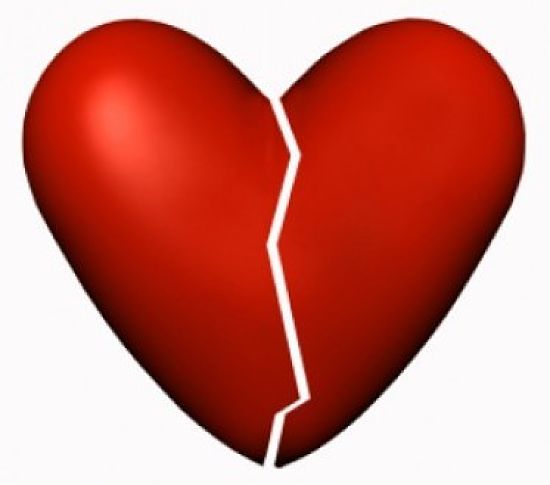
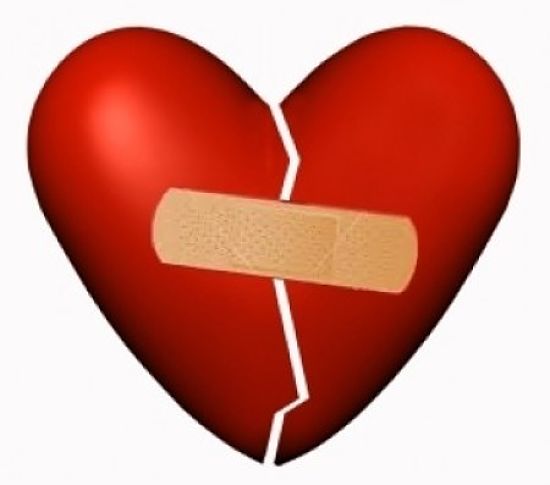
Grief Induces Symptoms Similar to Heart Attack
The symptoms are quite similar to a heart attack, with strong chest pains, but it is not a classic heart attack. During a stressful and emotional time the body sometimes releases a set of hormones that affect the heart in unusual ways. The hormones causes the heart to become elongated. and the pumping efficiency of the heart muscles is greatly reduced. The condition is treatable by hospital staff and most patients generally make a full recovery from the physical condition in a few days.
Various studies have also shown other ways is which the loss of a loved one or an emotional breakup can increase the risk of death in other ways. Surviving spouses may have increased likelihood of suffering cancer, heart disease, depression, alcoholism, and suicide.
Reactions to Grief
Many people feel numbness and shock in the first few days after their loved passes away. They may also experience tightness in the throat, shortness of breath, hallucinations, difficulty concentrating and lack of or excessive sleep and eating.
After the initial shock of hurt, many grievers experience a lack energy and have tension and headaches. They may also a heightened focus on emotions such as sadness, fear, guilt, anger, confusion and sense of emptiness. These emotional stresses can also suppress the immune system leading to other problems.
When a spouse dies, many people effectively lose their 'present tense' and many people may to want to follow their companion into death. Seeking medical help is the last thing that people want to do. Many people also struggle to cope with the anticipation of major changes survivors will have to make in their daily lives. Without their partner their the day to day lives will never be the same again.
Research Studies on Broken Heart Syndrome
Many research studies over the last 50 years have shown when someone very close to you dies – especially if it's your spouse, partner or child – you're at a significantly greater risk of dying yourself. And it is your heart that could fail and kill you during this period of intense grief, with heart attacks responsible for more than half of the excess deaths in those who are recently bereaved.
A team of researchers at the Sydney's Royal North Shore Hospital in Sydney, Australia recently studied 160 people, of which 80 had a partner or child who had died suddenly. The bereaved group reported more psychological symptoms such as depression, anger and anxiety.
They also had common physical symptoms such as reduced sleep and appetite, an increase in blood pressure and stress hormones, as well as changes in the immune system and blood clotting. It is likely that a combination of psychological, behavioural and biological responses, which increase the risk of a heart attack.
The bereaved group's symptoms or stress and anxiety were most intense a few weeks after their loved one died, but generally had declined considerably three months after the death.
Surprisingly the research study showed that the risks apply to all age groups, not just to the elderly. People as young as 30 developed physical symptoms, and in particular were more likely to have higher depressive symptoms in the early days after the death.
A study, by researchers from St Andrews University in Scotland, of more than 58,000 married couples, found that about 40 per cent of widowers and 26 per cent of widows died within three years of losing their partner. The study showed strong evidence that many widowers and widows were more likely to die because they had lost their spouse, this is referred to as the widowhood effect.
A classic example of the widowhood effect would be Johnny Cash. In 2003, just four months after the death of his wife, June Carter Cash, the singer died, aged 71, from complications arising from diabetes. Also the parents of Martin and Gary Kemp, the singers who found fame in the 1980s with Spandau Ballet, died within 48 hours of each other.
In another study, researchers examined 19 patients who had apparently had traditional heart attacks between 1999 and 2003 after having sudden emotional stress, including news of a death, being present during an armed robbery, shock from a surprise party, and being involved in a car accident. Most were women in their sixties and seventies, though one was just 27. None had a history of previous heart problems.
When comparisons were made with people who had classic heart attacks, they found that the test group had healthy hearts and unclogged arteries. However there were high levels of stress hormones such as adrenaline, in their blood. The hormone levels were two to three times higher than in the heart attack victims, and seven to 30 times higher than normal.
It has been suggested that these massive increases in stress hormones can directly stun the heart muscle causing a temporary heart malfunction that resembles a heart attack. The heart muscle isn't killed as occurs in a typical heart attack, but the heart stops working properly. Tests also found distinctive patterns in the electrical firing and contractions of the hearts of those who experienced the syndrome, which should enable doctors to diagnose the condition quickly.
Broken Heart Syndrome - is a known medical condition that frequently occurs soon after the loss of a loved one. Although Broken Heart Syndrome is discussed in modern and ancient literature, it was not recognised as a physical ailment until the early 1990’s. Symptoms of broken heart syndrome include shortness of breath, chest pain, insomnia and depression.
Although it may be easily mistaken for a heart attack, broken heart syndrome is actually an inflammatory heart disease that temporarily affects the heart muscle. The heart muscle becomes weak, and the apex of the left ventricle enlarges, constricting blood flow.
When a person is under stress through a broken heart, the brain releases high levels of catecholamines, primarily adrenaline, dopamine and norepinephrine. These hormones are active in the “fight-or-flight” response, and are part of the human sympathetic nervous system. The surge of catecholamines weakens the heart muscle, causing the heart to beat irregularity, constrictions, and changes in the shape of the heart.
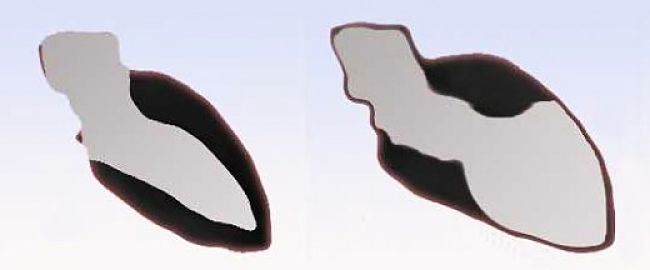
Women Especially Prone to Broken Heat Syndrome (BHS)
BHS is most common in women who have suffered the loss of a loved one or similar intense emotional trauma. A sudden fright, such as a robbery or even a surprise party, can also trigger BHS.
Although some patients suffering from BHS may require emergency treatment, or hospitalisation, the heart usually heals within a period of two weeks to two months. Psychological symptoms may persist for much longer. About 10 per cent of people diagnosed with BHS suffered a recurrence within four years.
It is possible to die of a broken heart through broken heart syndrome.
An extensive study by the Mayo Clinic found about 3.6 percent of fatalities rate in patients with broken heart syndrome.
The study also found that patients who experienced physical stress had lower survival rates than those under emotional stress alone.
Physical symptoms of Broken Heart Syndrome may include:
- chest pain and pressure
- shortness of breath
- arrhythmia
- stomach pain, nausea and/or loss of appetite
- fatigue
- insomnia
Psychological effects of Broken Heart Syndrome may include:
- depression
- constant or frequent crying
- thoughts of suicide
- feelings of emptiness
- the so-called “thousand yard stare” (a military term, used to describe to battle-weary soldiers. Under extreme stress, the gaze may become distant, unfocused and emotionless, indicating a detachment from reality).
Conclusion
Yes, You can die of a Broken Heart!

